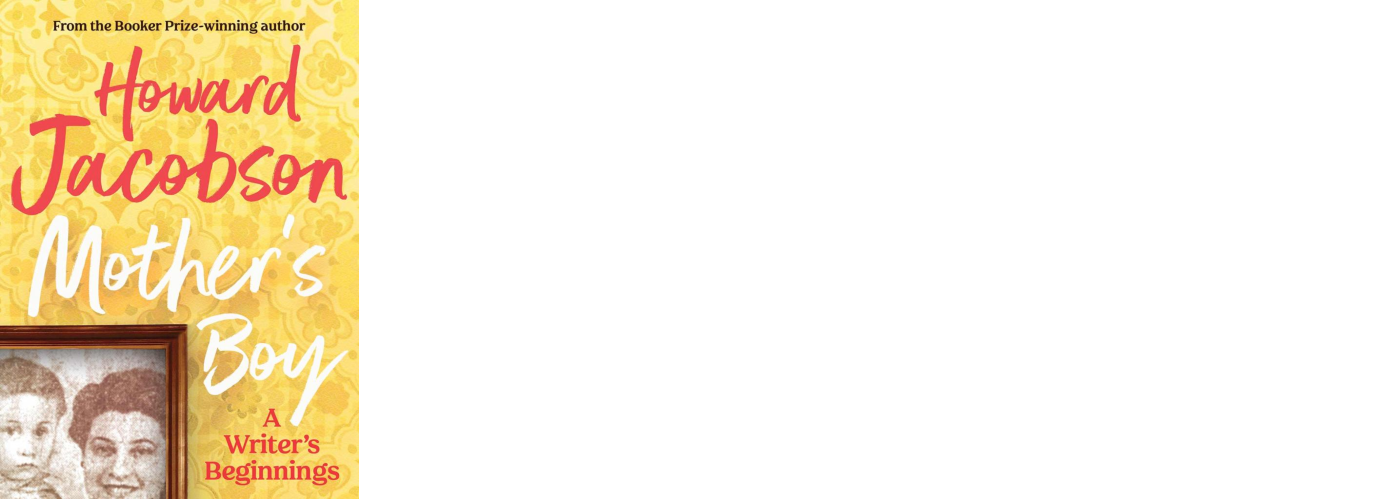Butler to the World by Oliver Bullough: ‘highly readable but thoroughly depressing’
Timely analysis of how Britain has helped to launder others’ fortunes

A free daily email with the biggest news stories of the day – and the best features from TheWeek.com
You are now subscribed
Your newsletter sign-up was successful
In this “brilliantly funny” and “bittersweet” memoir, the Booker Prize-winning novelist Howard Jacobson looks back on his tormented early life, said Kathryn Hughes in The Sunday Times. He emerged, he shows, from “irreconcilable elements”: Anita, his Lithuanian-descended mother, was a woman of “apocalyptic pessimism”, while his father Max, whose roots were Ukrainian, had a “bouncier demeanour”.
As the title – Mother’s Boy – suggests, Jacobson was closer to his mother in temperament. “As a teenager he devoured literature, but was hopeless at the things that were meant to make a macher,” – a player, the sort of man of whom his father approved.
After grammar school, he went to Cambridge and studied under the “influential literary critic F.R. Leavis”, who taught “clever young men” to worship Jane Austen, Henry James and other novelists in the Great Tradition. This ushered Jacobson into his first career – as a lecturer in English at Wolverhampton Polytechnic – but had a “deleterious effect” on his own writing ambitions. “Since I couldn’t be Dickens,” he recalls, “I couldn’t be anybody.”
The Week
Escape your echo chamber. Get the facts behind the news, plus analysis from multiple perspectives.

Sign up for The Week's Free Newsletters
From our morning news briefing to a weekly Good News Newsletter, get the best of The Week delivered directly to your inbox.
From our morning news briefing to a weekly Good News Newsletter, get the best of The Week delivered directly to your inbox.
Despite believing that he was “put on Earth to write”, it wasn’t until he was 40 that Jacobson published his first novel, said Frances Wilson in The Spectator. In the meantime, he was deeply unhappy – by his own estimation “a failed husband, a failed father, a failed university lecturer”.
What finally got him over his writer’s block was the realisation that he shouldn’t shrink from his Jewishness; instead, he could embrace it unapologetically in his work – and as a result he “broke new ground”, becoming Britain’s answer to Philip Roth. Both “very funny” and “profoundly serious”, Mother’s Boy is a superb memoir. “If there is a better contemporary account of the cost of becoming a writer I’ve yet to read it.”
Jonathan Cape 288pp £18.99; The Week Bookshop £14.99

The Week Bookshop
A free daily email with the biggest news stories of the day – and the best features from TheWeek.com
To order this title or any other book in print, visit theweekbookshop.co.uk, or speak to a bookseller on 020-3176 3835. Opening times: Monday to Saturday 9am-5.30pm and Sunday 10am-4pm.
-
 How to Get to Heaven from Belfast: a ‘highly entertaining ride’
How to Get to Heaven from Belfast: a ‘highly entertaining ride’The Week Recommends Mystery-comedy from the creator of Derry Girls should be ‘your new binge-watch’
-
 The 8 best TV shows of the 1960s
The 8 best TV shows of the 1960sThe standout shows of this decade take viewers from outer space to the Wild West
-
 Microdramas are booming
Microdramas are boomingUnder the radar Scroll to watch a whole movie
-
 6 exquisite homes with vast acreage
6 exquisite homes with vast acreageFeature Featuring an off-the-grid contemporary home in New Mexico and lakefront farmhouse in Massachusetts
-
 Film reviews: ‘Wuthering Heights,’ ‘Good Luck, Have Fun, Don’t Die,’ and ‘Sirat’
Film reviews: ‘Wuthering Heights,’ ‘Good Luck, Have Fun, Don’t Die,’ and ‘Sirat’Feature An inconvenient love torments a would-be couple, a gonzo time traveler seeks to save humanity from AI, and a father’s desperate search goes deeply sideways
-
 A thrilling foodie city in northern Japan
A thrilling foodie city in northern JapanThe Week Recommends The food scene here is ‘unspoilt’ and ‘fun’
-
 Tourangelle-style pork with prunes recipe
Tourangelle-style pork with prunes recipeThe Week Recommends This traditional, rustic dish is a French classic
-
 Samurai: a ‘blockbuster’ display of Japan’s legendary warriors
Samurai: a ‘blockbuster’ display of Japan’s legendary warriorsThe Week Recommends British Museum show offers a ‘scintillating journey’ through ‘a world of gore, power and artistic beauty’
-
 BMW iX3: a ‘revolution’ for the German car brand
BMW iX3: a ‘revolution’ for the German car brandThe Week Recommends The electric SUV promises a ‘great balance between ride comfort and driving fun’
-
 Arcadia: Tom Stoppard’s ‘masterpiece’ makes a ‘triumphant’ return
Arcadia: Tom Stoppard’s ‘masterpiece’ makes a ‘triumphant’ returnThe Week Recommends Carrie Cracknell’s revival at the Old Vic ‘grips like a thriller’
-
 My Father’s Shadow: a ‘magically nimble’ love letter to Lagos
My Father’s Shadow: a ‘magically nimble’ love letter to LagosThe Week Recommends Akinola Davies Jr’s touching and ‘tender’ tale of two brothers in 1990s Nigeria